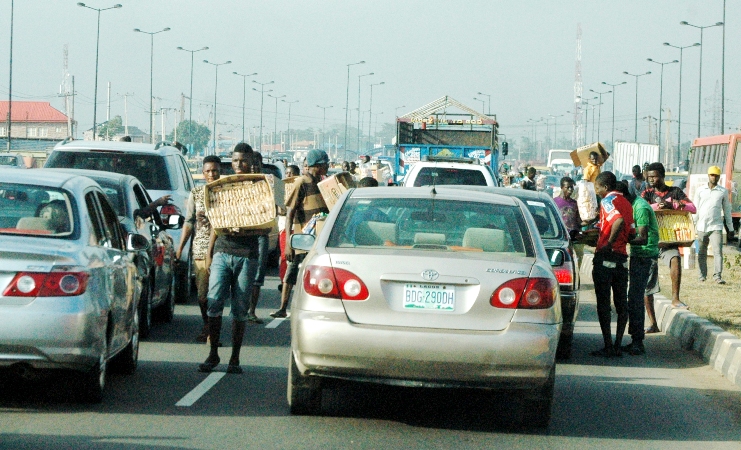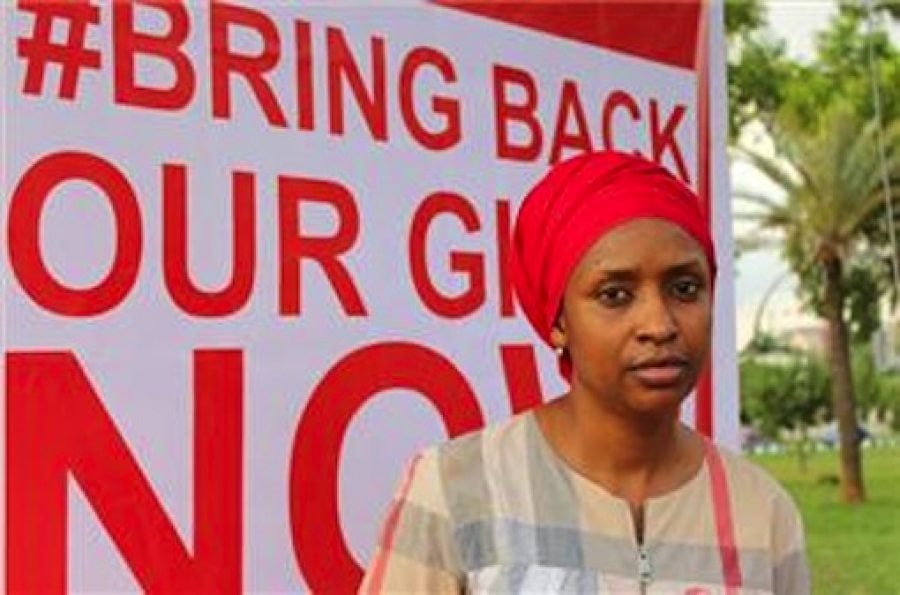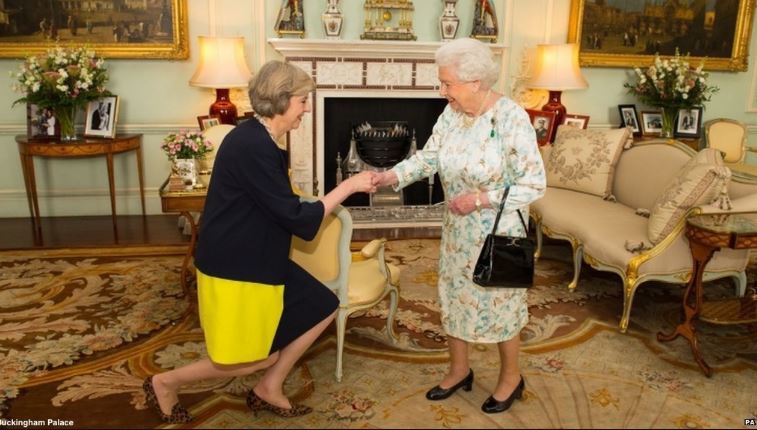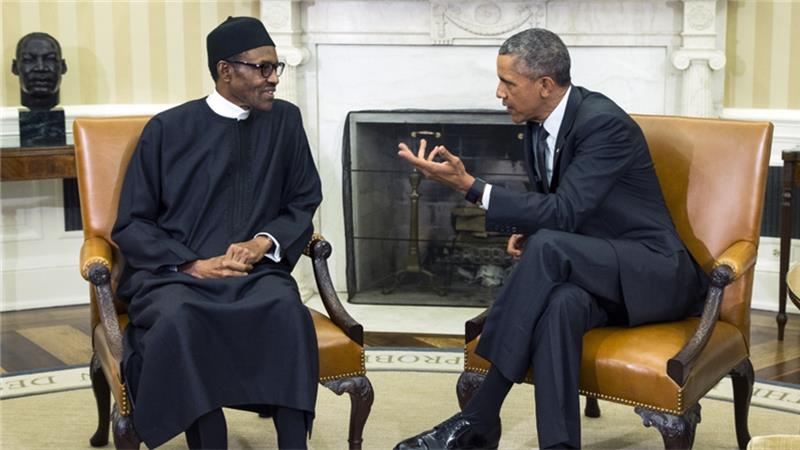Again, ferocious voices of concern are speaking out in support of the perceived voiceless and the less-privileged in the society.
Such voices are not necessarily in the majority. But they are vociferous enough in asking government and general public to show more sensitivity in dealing with the issue of contentious street hawking and trading and the perceived need for restrictions of such activities.
The basis for the agitation this time is the decision of the Lagos State government to step up enforcement of the law that prohibits street trading and illegal hawking in Lagos State. Many expressing variegated opinions apparently have either not read the law or are unaware that it was not promulgated by the Akinwunmi Ambode administration.
The Lagos State Street Trading and Illegal Market Prohibition Law came into effect in 2003. It has been functioning ever since, with nobody asking for its review or outright repeal. But penultimate Friday when Governor Ambode drew attention to Section One of the Law which criminalises both the act of selling on the streets or citing markets in areas not designated for such activity as well as the act of patronizing them, and that either the seller or the buyer of wares on highways or illegal markets are liable for a fine of N90.000 or a six-month imprisonment, all hell was suddenly let loose.
Advertisement
But a cursory look at the arguments of the nay-sayers seem to border on one salient point: that street trading, and its twin-menace of hawking on the highways, form an integral part of informal sector in Nigeria and any attempt to either prohibit them or regulate their unwholesome conduct will amount to taking menial jobs away from the poor, the uneducated and the less privileged whose last resort, in their wisdom, is street hawking.
It is a considerate argument to make only if the proponents can enlarge the scope of the debate to appreciate the reason why this particular law was promulgated 13 years ago and be sincere to accept that Lagos State, much more than any other undoubtedly, has been the clear leader in creating opportunities for the poor and the lower middle-class all across the state, even while maintaining the need to keep the state tidy enough as an emerging megalopolis whose fortunes and future depend as much on keeping its teeming population open to opportunities as it does on keeping it attractive to foreigners to visit and invest.
And so, is it just the need to protect the right of street hawkers in eking out a living in Lagos and forcibly legitimize a kind of odious street credibility that is at the heart of this argument and pro-street hawking hashtags curious spinning out of certain quarters? Or it is a neatly woven veiled resistance from buyer-culprits who want to use the plight of hawkers to justify their unwholesome attitude of buying fruits, snacks and bottled water and consume them in traffic and then throw the thrash back on the streets?
Advertisement
When certain commentators say as a matter of factly that street hawking is part of our culture and that poverty is the only reason why anyone would choose to be on the streets selling, I would like to urge them to be true to their consciences and analyse why not every poor and uneducated persons have chosen not to be an armed robber, a commercial sex worker or to find life totally unworthy of living. Research has even shown that the percentage of physically challenged people that resort to begging for alms on the streets pale in significance when compared to those who are constantly demonstrating ability in disability in spite of their physical challenge.
However, the background as to why that law was promulgated in the first instance is important to puncture the argument of those who think the law is unfair to commerce and the sub-informal sector. Lagos owes this law to the vision of the Asiwaju Bola Ahmed Tinubu administration which inherited a somewhat dysfunctional state from the military but which took its time to build a solid foundation upon which the two successive administrations in the state have since erected pillars of continuous progress that has turned the state into not just the envy of others among its peers but the fifth largest economy in the whole of Africa.
It had become necessary, in those days of indiscipline, environmental degradation and reckless driving that certain laws be promulgated to arrest the untoward situation. The situation was dire, for example, and therefore important not just to fine erring and recalcitrant drivers but also to subject them to sanity test at their own cost if they were caught driving against traffic and thereby causing needless but fatal accidents to themselves and law-abiding citizens who would not expect that a sane person would be driving against traffic in horrendously high speed. The intention certainly was not to generate revenue through the fines imposed on reckless drivers but to deter others who might think Lagos was no man’s land with unenforceable laws.
The needs of those times gave birth to Lagos State Traffic Management Authority (LASTMA), the Rapid Respond Squad (RRS) to combat the spiraling crime waves and the Kick Against Indiscipline (KAI) brigades as well as ‘Sanitation Gangs’ mandated to restore order and sanity on our streets.
Advertisement
The Lagos State Street Trading and Illegal Market Prohibition Law (2003) was part of those needed interventions at that time, which have not only rescued the state from pangs of lawlessness to an appreciable extent but which have also provided the needed intervention in such notorious markets such as Oshodi, as demonstrated by the Babatunde Fashola administration in January 2009 as well as the courageous relocation of the Owonifari market in the same Oshodi to a modern Isopakodowo in Bolade by the Ambode administration in January 2016 to pave way for an audacious multi-layered bus terminus.
The point of this background is that this same law has always been there and has been the pivot for the necessary intervention that KAI brigades have always carried out when hawkers turn our highways to an unsightly arena of commercial activities or respond to complaints of citizens who have had their streets, playgrounds, roundabouts or pedestrian bridges turned to illegal markets that obstruct human and vehicular movements or endangers lives.
In any case, the basis for which street hawkers run away when they see KAI vehicles or brigades is because they recognize that they have transgressed. They are not ignorant of the law and they sure know the consequence of flagrant disobedience to the laws of the land. This is the type of narrative that is ongoing in major cities of the world – governments trying to maintain order and sanity in cities where many are desperate for survival. It is the delicate balance between the two that dominate discourse from Accra to Cairo and from Mumbai to Rio de Janeiro. It is yet the same that has made Governors Nasir el Rufai in Kaduna and Abiola Ajimobi in Oyo to put their feet down in defence of propriety and acceptable public conduct in the matters of street beggars and traders in areas that government consider too strategic to deface.
It is unfortunate that a young man lost his life last month in Maryland area of Lagos while trying to escape upon citing KAI officials who were on routine patrol. Governor Ambode has personally expressed his deep sympathies to the family of the deceased. It was an unfortunate but avoidable death, which also led to another unfortunate destruction of public assets that will be now be repaired by tax payers money.
Advertisement
It is therefore saddening that a few commentaries will be silent about the human cost of the illegality of hawking wares on the highways. I am concerned about the cost to the hapless citizens who have chosen this route for survival. We saw agitation because the Maryland incident was erroneously perceived to have been caused by a public truck. But hardly does any week passes that casualties are not recorded for street hawkers losing their wares and lives while running after buyers. There have been cases of vehicles running into hawkers or illegal street traders. Many never get to collect payments for wares sold. And on each occasion that government decides to wield the big stick, in conformity with the law, the woes are endless for these people.
And yet we hear of commentators arguing that certain laws are enforceable or encouraging lawlessness by being silent about the consequence of defiance. Would it not be better to at least encourage the hawkers to leave the highways first for their own good while urging government to work with stakeholders to explore the possibility of amendments where necessary? Or simply encourage the aggrieved to approach the courts as the commercial motorcycles did but lost in the end?
Advertisement
If we ignore the environmental nuisance that street hawking on the highways constitutes to a megacity that needs a good image to continue to attract and retain Foreign Direct Investments (FDIs), can we really pretend that some of these hawkers do not either shield or transform into armed robbers that dispossess drivers and commuters of their valuables?
But this does not have to continue!
Advertisement
Hawkers and street traders do not have to lose their lives this way. And public assets like roads and mass transit buses do not have to be destroyed just to get a few sausage rolls sold to people heading home for dinner. There is a law in place that has envisaged all these and what the present administration has done, like most civilized countries of the world, is to draw attention to the law, to sensitize the public about the dangers of this nuisance and to stress without any shred of timidity that there are rules here like elsewhere and laws that are for public good need to be enforced for the benefit of the majority.
Like the law restricting commercial motorcycles on major highways in Lagos, the concern of Lagos State government is first and foremost to enforce the street trading laws on our highways and major streets and to persuade those who choose to leave their shops for the ‘convenience’ of rush-hour traffic sales that such will no longer be tolerated, particularly on the highways. And serious commentators need not trivialise this issue by suggesting that the target of enforcement are newspaper vendors. They are not!
Advertisement
A government that is opening up hitherto abandoned areas with massive road constructions and rehabilitation, with street lights and world-class state-funded security apparatus to encourage a 24-hour economy in addition to an Employment Trust Fund that will allow underprivileged people with ideas and drive to have access to soft loans between N100.000 and N1m cannot be said to be anti-poor or anti-commerce.
The recourse to enforcement is to save the poor from wanton deaths and harassments on the highways and of course to remind visitors and every stakeholder that there are rules guiding public conduct in Lagos State and enforcing the laws of the land is the responsibility of a responsive government.
Views expressed by contributors are strictly personal and not of TheCable.







